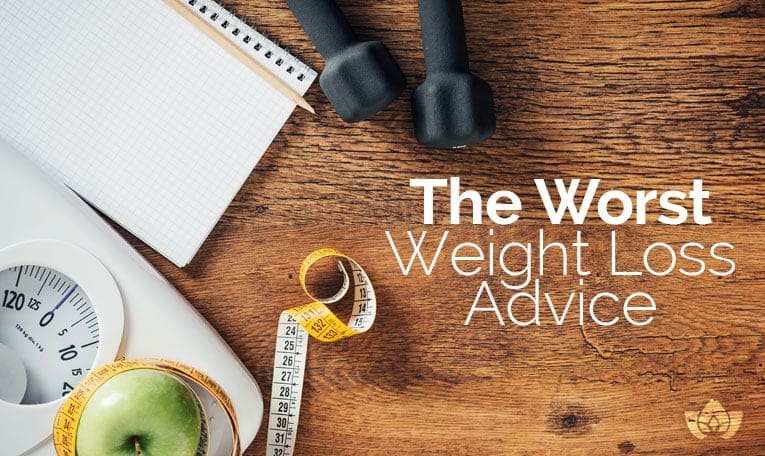
Food, is essential to your survival, of course.
Without food, the estimates of survival show that the average person can survive for 43 to 70 days.
This is because food is needed for many essential functions that keep you going throughout your day.
You use food to make sure to maintain the energy you need for essential tasks.
Food is also used to allow for the growth of your bones, and the proper functioning of your essential organs.
You receive the nutrients you need to breathe, keep your immune system strong, digest food, reduce your stress levels, and a lot more, from the food you eat.
Reducing your stress levels helps to reduce anxiety, and depression, and helps you maintain your mental health.
RELATED: Naturopathic Treatment For Depression In Adults
Aside from anxiety and depression, nutrients also reduce other illnesses around the world.
With so many food ingredients out there, sometimes it can be difficult to balance how much food to take in, while maintaining a healthy weight.
A consequence of eating too much of certain foods, is that it can also cause you to become overweight.
Are you on a journey to lose weight but you’re not sure where to start?
Navigating the world of weight loss advice can be quite frustrating.
There are so many resources out there.
Oftentimes weight loss advice focuses on diet.
Read enough articles on weight loss, and your list of “allowed” items will be reduced to lettuce and water.
Many diets tell you to avoid whole food groups, missing a lot of the more nuanced aspects of good nutrition.
There are many aspects that go into a good diet.
It’s never as simple as avoiding certain foods and eating more of others like fermented foods, beets,carrots, kale, and apples.
The key to losing weight could be in a more balance approach to your diet.
As a naturopathic doctor in Mississauga, I can help you figure out a balanced approach to food that’ll allow you to enjoy a great variety of foods while improving your health.
Do you really need to give up all fats?
Or, is giving up on carbs best for you?
And how can a naturopathic doctor for weight management help?
Read on to find out.
Is All Fat Bad For You?
Many people assume that individuals may be obese because they eat too much fat.
Common statements run around like “don’t want to be fat? Don’t eat fat” or “that person is obese because they can’t stop eating.”
People think this is the common sense approach to not being obese but, is it?
When it comes to common sense ideas, common nonsense is just as pervasive, especially when it comes to dieting.
These ideas run rampant in our society but they don’t actually benefit others.
This popular advice falls into the latter category of being nonsense advice.
As counterintuitive as it might sound, not all fatty foods are bad for your weight loss diet, and some can actually benefit you.
There are certain foods with fats, such as, nuts, seeds and fish that can be good for you in moderation.
Fish contains things like omega-3 fatty acids, which are good to add into your diet.
Meanwhile, food labeled as “fat free” or “low fat” might include a substitute that’s worse for you than fat.
If you ever find yourself staring at that low fat food, scratching your head and wondering why it still has the same number of calories if the fat is gone, this is why.
You’re getting processed sugars instead now.
Adding processed sugars to your food is just another way of substituting out fat for something else.
This does not mean the fat free stuff is good for you.
Too much fat free food is linked to numerous health issues.
These issues include metabolic disorders, issues with your skin due to a lower cell growth in these areas, and bone issues.
Fats also help you absorb vitamins such as vitamin A, vitamin D, vitamin E, and vitamin K.
If you’re too low on fats, it can cause you to be low on essential vitamins, which can cause various issues.
Low fat levels can also cause issues with your cell growth.
Wound healing will take longer due to this, and reduced hormone production is another consequence of this slower cell growth.
On the other hand, certain fats can be good for you.
This includes the milk you eat that cereal with.
As it turns out, high fat dairy is correlated with a more than halved risk of type 2 diabetes, and a lower risk of cardiometabolic disease and weight gain as well.
Some great sources of healthy fat include walnuts, salmon, flax, sunflower seeds, avocados, and extra virgin olive oil.
These include different varieties of omega-3 fat acids and other healthy fats, which help reduce inflammation in the body.
The increased inflammation associated with obesity might be a mediating factor between obesity and its various pathological consequences.
So does this mean you get a free pass to all culinary wonders of fat?
Sorry, the answer is no.
Saturated fats and trans fats are still bad for your heart, and put you at risk of obesity.
You can lower your intake of saturated and trans fats by checking the nutrient label on your foods, and making sure these are lower in nature.
You can also avoid foods like pizza, popcorn, butter, and fried foods.
But before you call me a killjoy, I at least have some good news about eggs.
Eggs do not have as great of an impact on bad cholesterol as previously thought.
Trans fats are the real problem (so watch what you eat alongside your eggs).
If you’re healthy, eggs can be a great source of B vitamins, vitamin D, antioxidants, protein, and more.
Just don’t overdo it.
The recommended daily cholesterol limits vary between 200 and 300mg a day, which translates to 1 large egg or 2 small eggs.
However, if you’re at risk of cardiovascular disease or diabetes, eggs are still not your friends.

Should You Avoid All Carbs?
Foods like bread, pastas, peas, corn and junk food all contain carbohydrates within them.
Some carbohydrates can cause high cholesterol levels that put you at risk for certain health conditions.
They can increase your risk of digestive issues as well.
RELATED: Naturopathic Solutions For Digestive Issues.
It’s a common myth, however that you must shun carbohydrates and never eat them at all.
Like with fat, there are bad carbohydrates and good carbohydrates, and there’s moderation.
Complex carbohydrates can improve your gut health as well as your cardiovascular health.
Their high levels of fibre help lower cholesterol as well.
The phrase “whole grain” is often touted as a magic stamp of healthiness.
However, it’s not as simple as that.
Within the current FDA standards, a food can be labeled whole grain with as little as half of its content being actually whole grain.
Processed “whole grain” foods are frequently low on fibre and nutrients.
To get complex carbohydrates, opt for foods like lentils, beans, vegetables, and fruits.
Lentils also contain B vitamins, which is good for your liver.
Protecting the liver can in turn protect your gallbladder.
This can reduce your risk of diabetes.
Beware the quantity of grains and breads though, as even breads labeled as whole wheat can actually be half wheat sometimes.
Is Diet Soda Is A Good Substitute For Soda?
Soda is rough.
It can exasperate the symptoms of a preexisting digestive conditions, such as ulcerative colitis, and Crohn’s disease.
It’s also loaded with sugar – 32 grams of it in the average can of soda.
According the American Heart Association, the recommended daily intake of sugar for men is 36 grams, and 25 grams for women.
That’s A LOT of sugar.
Diet soda is not a good substitute for soda though.
Just like with fat free products, it’s not enough to eliminate something from your diet.
Be careful with what you’re replacing these things with in your diet.
The artificial sweeteners in diet soda will do more damage than good.
A literature review that looked at 7 trials (1003 participants observed for 6 months) and 30 cohort studies (405,907 participants observed for 10 years) found artificial sweeteners to be ineffective in weight loss.
In fact, they were typically correlated with higher BMI and risk of cardiometabolic disease.
These sweeteners also increase your risk for the development of cancer.
Book Your Appointment With The Mindful Healing Clinic Today
Do you want to find out how to eat a sensible, sustainable diet?
Contact me, Dr. Maria Cavallazzi, to book your nutritional counselling consultation at the Mindful Healing Clinic in Mississauga.
I will help you understand how naturopathy can help you develop a diet strategy that works for you.
Afterwards, we will create together a personalized meal plan that will improve not just your weight, but your health as well.
Don’t bounce from one bad diet to another.
Book your appointment with The Mindful Healing Clinic today.
Until next time,
Dr. Maria Cavallazzi, N.D
Mindful Healing Naturopathic Clinic
Mississauga, ON L5M 1L7
(905) 819-8200
► https://g.page/MindfulClinicNaturopathic
Dr. Maria Cavallazzi is a medical doctor from Colombia where she practiced as a family physician for 8 years until she moved to Canada 16 years ago and became a naturopathic doctor in Mississauga.


